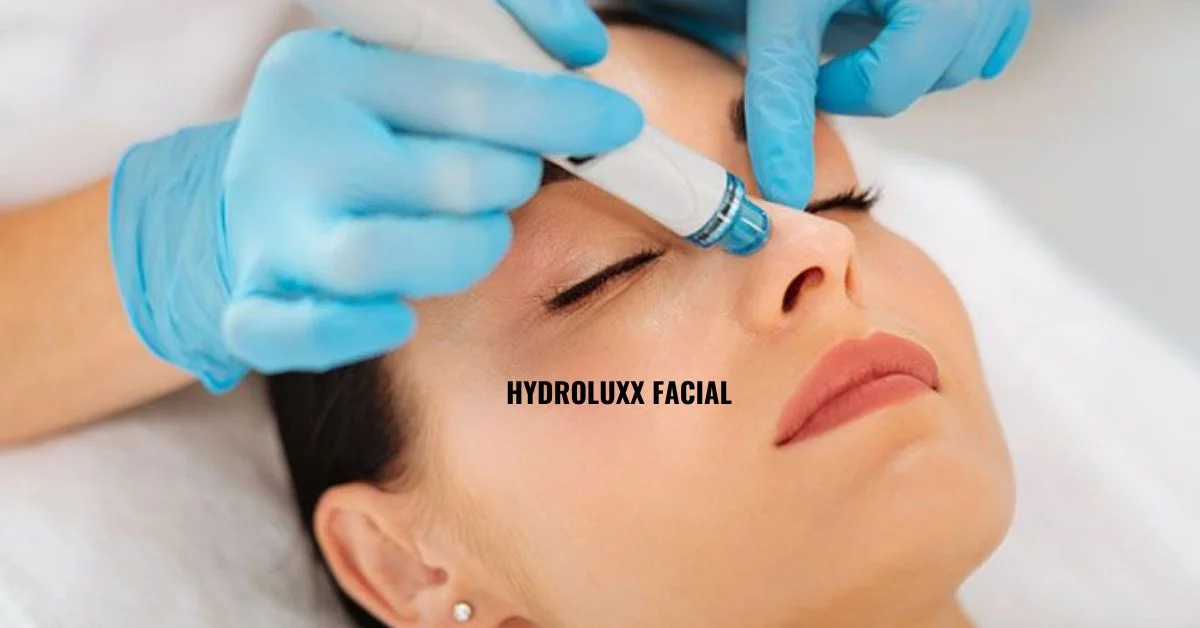BEAUTY
From Oral Hygiene to Good Habits: The Secret to Natural Perfect Teeth

Do you dream of having natural perfect teeth without expensive treatments? Achieving a glowing smile isn’t just about genetics or professional dental care. It’s about incorporating simple oral hygiene practices into your daily routine.
In this article, you’ll learn how to maintain a beautiful, healthy smile effortlessly. We’ll discuss easy tips and habits that can help you get and keep those natural perfect teeth you’ve always wanted.
Let’s dive into the secrets behind a radiant smile!
Basic Oral Hygiene Habits
Maintaining good oral hygiene is crucial for overall health and well-being. Here are some essential oral hygiene habits that everyone should follow to keep their mouth healthy:
Brushing Teeth
Brushing your teeth twice a day is the cornerstone of good oral hygiene. Use a fluoride toothpaste to strengthen your enamel and prevent cavities. A soft-bristled brush is recommended to avoid damaging your gums.
Make sure to brush for at least two minutes, covering all surfaces of your teeth. Do not forget to brush your tongue to remove bacteria and keep your breath fresh.
Flossing
Flossing is an essential part of maintaining oral hygiene. It helps remove plaque and food particles from areas that your toothbrush can’t reach, particularly between your teeth and under the gumline. Doing this daily can greatly reduce the risk of cavities and gum disease.
To floss correctly, use about 18 inches of dental floss, winding it around your fingers. Slide it gently between your teeth and curve it against each tooth, making sure to go below the gumline without forcing it.
This cosmetic dentist in Ballwin adds that you can also use an interdental brush or water flosser instead of dental floss.
Using Mouthwash
Using mouthwash is an effective way to enhance your oral hygiene routine. It can help reach areas that brushing and flossing may miss. Mouthwash helps reduce the amount of bacteria in your mouth, which can lead to healthier gums and fresher breath.
When choosing a mouthwash, look for one that contains fluoride to help strengthen your teeth. Use the mouthwash daily, following the instructions on the label for the best results.
Maintaining a Healthy Diet
A healthy diet is essential for strong, natural perfect teeth. Foods rich in vitamins and minerals, such as leafy greens, dairy products, and lean proteins, can help keep your teeth and gums healthy. Limit sugary snacks and drinks, as they can lead to tooth decay.
Drink plenty of water to wash away food particles and bacteria. Eating crunchy fruits and vegetables can also help clean your teeth and stimulate your gums.
Regular Dental Check-Ups
Regular dental check-ups are vital for maintaining good oral health. Your dentist can spot early signs of problems like cavities or gum disease, which you might not notice on your own. They can also give professional cleanings to remove plaque and tartar buildup that regular brushing and flossing can’t eliminate.
Visiting your dentist twice a year is recommended for most people. These check-ups help ensure that your teeth and gums stay healthy, preventing more serious issues down the line. If you have symptoms of gum disease, such as persistent bad breath, swollen or bleeding gums, consider laser treatment for periodontal disease.
Replacing Your Toothbrush Regularly
It’s important to replace your toothbrush every three to four months. Worn out bristles become less effective at removing plaque and food particles from your teeth. A new toothbrush ensures that you are getting the best possible clean each time you brush.
Toothbrushes should also be replaced after you’ve been sick. This prevents bacteria from lingering and causing reinfection. Make it a habit to regularly check the state of your toothbrush and replace it as needed.
Avoiding Tobacco Products
Avoiding tobacco products is crucial for maintaining good oral health. Tobacco can lead to stained teeth, bad breath, and a decreased sense of taste. It also increases the risk of developing oral cancers, gum disease, and tooth loss.
Quitting tobacco use can significantly improve the health of your mouth. Consult your dentist or doctor for advice and support on how to stop using tobacco products.
Using Dental Sealants
Dental sealants are thin coatings applied to the chewing surfaces of the back teeth. They help prevent cavities by creating a protective barrier that keeps food and bacteria out of the grooves and crevices. Sealants are especially beneficial for children and teenagers, as their teeth are more prone to decay.
The application of dental sealants is quick and painless. A dentist or dental hygienist will clean the teeth, apply an adhesive, and then paint the sealant onto the tooth enamel. The sealant hardens quickly, offering protection for several years with proper care.
Protecting Teeth from Injury
Protecting your teeth from injury is an important part of maintaining oral health. Wearing a mouthguard during sports activities can prevent chipped or knocked-out teeth. It is also important to avoid using your teeth as tools to open packages or bottles.
Additionally, be mindful of the foods you eat; avoid hard foods such as ice or unpopped popcorn kernels that can crack your teeth. Dental injuries can lead to serious complications if not treated promptly by a dentist.
Limiting Alcohol Consumption
Limiting alcohol consumption is important for maintaining good oral health. Alcohol can contribute to dry mouth, which reduces saliva production and increases the risk of tooth decay and gum disease. Additionally, many alcoholic beverages contain high levels of sugar, which can lead to cavities.
Regularly drinking alcohol can also stain your teeth and cause long-term damage. It is advisable to drink in moderation and brush your teeth soon after consuming alcoholic drinks to minimize the impact on your oral health.
Dietary Habits for Healthy Teeth
Maintaining a diet that promotes dental health is essential for preventing cavities, gum disease, and other oral health issues. Here are some dietary habits and tips to help keep your teeth healthy:
Limit Sugary Foods and Beverages
Consuming sugary foods and beverages can lead to tooth decay and cavities. Sugar interacts with bacteria in your mouth to form acids, which attack the tooth enamel. Over time, this can cause significant damage to your teeth.
To maintain healthy teeth, it’s important to limit your intake of sweets and sodas. Opt for healthier snacks like fresh fruits, vegetables, and nuts. Drinking water instead of sugary drinks also helps protect your teeth.
Choose Teeth-Friendly Foods Rich in Calcium and Phosphorus
Eating foods rich in calcium and phosphorus is crucial for maintaining strong teeth. Calcium can be found in dairy products such as milk, cheese, and yogurt, which help reinforce tooth enamel. Phosphorus-rich foods like meat, fish, and eggs support healthy teeth by aiding the body in absorbing calcium.
Incorporating these nutrients into your diet can help keep your teeth strong and less prone to decay. Regular consumption of calcium and phosphorus also contributes to maintaining overall dental health.
Eat Foods High in Vitamin C
Eating foods high in vitamin C is important for maintaining healthy gums. Vitamin C helps repair tissue and supports the production of collagen, which is essential for gum health. Good sources of vitamin C include citrus fruits, strawberries, kiwi, bell peppers, and broccoli.
Including these foods in your daily diet can help prevent gum disease and bleeding gums. A diet rich in vitamin C also aids in strengthening your immune system, which can help protect your mouth from infections.
Increase Water Consumption
Drinking plenty of water is vital for maintaining healthy teeth. Water helps wash away food particles and bacteria that can lead to tooth decay. It also helps neutralize acids produced by bacteria in your mouth.
Regular water consumption keeps your mouth hydrated and supports the production of saliva. Saliva is essential for protecting your teeth and gums by providing minerals that strengthen tooth enamel.
Chew Sugar-Free Gum
Chewing sugar-free gum can be beneficial for your oral health. It helps increase saliva flow, which aids in washing away food particles and bacteria from your mouth. Increased saliva also helps neutralize acids that can cause tooth decay.
Sugar-free gum often contains xylitol, a natural sweetener that reduces the growth of cavity-causing bacteria. Chewing gum after meals can be a convenient way to maintain oral hygiene when brushing isn’t possible.
Snack Smartly and Avoid Sticky or Hard Foods
Choosing smart snacks is important for maintaining healthy teeth. Opt for snacks that are low in sugar and high in nutrients, like fresh fruits, vegetables, and nuts. Avoid snacks that stick to your teeth or are hard to chew, as they increase the risk of tooth damage and decay.
Sticky foods, such as caramel and gummy candies, can cling to your teeth and promote cavity formation. Hard foods, like popcorn kernels and ice, can crack or chip your teeth, leading to dental injuries that require professional laser treatment.
Smile Brighter With Natural Perfect Teeth
Achieving natural perfect teeth is within everyone’s reach by following simple and consistent oral hygiene practices. From brushing and flossing daily to maintaining a healthy diet, considering dental implants, and regular dental check-ups, each step plays a crucial role in keeping your smile radiant.
Remember, small daily habits can lead to significant long-term benefits. Embrace these easy tips to enjoy the confidence and health that come with having natural perfect teeth.
Did you find the information in this article helpful? If so, be sure to check out our blog for more valuable resources.
BEAUTY
Peel Pads – An Innovative Skincare Solution

Peel pads are one of the most efficient skin care products today. They are most commonly recommended by doctors and skincare professionals. They gently cleanse and renew skin, providing a smoother, more glowing complexion.
This skincare product is a miracle that delivers great results. Peel pads are a must-have to resurface and retexturize your skin tone. INSTYTUTUM offers high-quality facial peel pads with ingredients whose efficacy is clinically proven. There are a vast number of benefits to this potent, non-irritating acid cocktail:
- reduced wrinkles
- moisturized and hydrated skin
- less visible spots and hyperpigmentation
- boosted collagen production
- stimulates the production of collagen
INSTYTUTUM’S Peeling Flawless Pads are popular among celebrities, and dermatologists recommend adding them to your skincare routine.
What are the benefits of peeling flawless pads?
INSTYTUTUM’S powerful and easy-to-use pre-soaked pads are produced with glycolic, lactic, citric, hyaluronic, and salicylic acids that visibly reduce pore size, fine lines, and wrinkles. This skincare product also helps to improve skin tone, texture, and luminosity.
Flawless pads contain Purslane extract that functions as a strong soother, itch reliever, and antioxidant. All these ingredients influence collagen production and cell turnover, remove hyperpigmentation, and boost the moisturization effect.
Apply the pad to clean, dry skin on the face and neck. Experts recommend using it 3 times a week if you are new to this type of skincare and then increasing it to twice daily to achieve smooth, firm, and renewed skin. Don’t forget to apply sunscreen after using the peeling pads if you plan to go outside.
What can Peeling Flawless Pads be combined with?
Experts recommend combining the product with Brightening C-Illuminating 3D Moisturizer for an amazing effect. It provides an immediate radiant glow and supple, healthy, and intensely hydrated skin. INSTYTUTUM’S moisturizer includes the following ingredients:
- vitamin C brightens, reduces hyperpigmentation, stimulates collagen, and increases elasticity
- multi-molecular HA complex provides multi-depth hydration
- high-molecular-weight HA rapidly penetrates and creates a protective film on the skin surface, reduces water loss from the inside, provides 24-hour moisturization, repairs and restores from the inside, and provides anti-pollution/anti-UV benefits
- tri-peptide-1 promotes skin renewal and makes wrinkles less visible
- probiotics stabilize and create a healthy skin barrier
- pomegranate extract generates anti-aging and moisturizing effects
Other ingredients such as shea butter, almond and jojoba oil, allantoin, vitamin E, and B5, help to keep your skin smooth, calm, and soft and provide anti-inflammatory, repairing, and moisturizing effects.
INSTYTUTUM experts recommend applying the skincare product to a properly cleansed face to achieve an instantly radiant complexion or as a makeup base for extra glow.
Conclusion
INSTYTUTUM Flawless Peeling Pads are full of natural and powerful ingredients. The main components are acids that improve your skin complexion at once.
Natalia Derkach mentioned that the goal of the INSTYTUTUM brand is to show everyone how to get the best skin and achieve real results in their skincare routine. That is why the brand has a full line of professional skincare products that are used by celebrities and recommended by top dermatologists worldwide.
Visit the INSTYTUTUM official website for more information about a high-efficacy skincare routine to make your skin healthy and radiant.
BEAUTY
The Hydroluxx Facial: A Luxurious Journey to Rejuvenated Skin

In the realm of skincare, where innovation reigns supreme, the Hydroluxx facial has emerged as a luxurious and effective treatment for achieving radiant and rejuvenated skin. This multi-step procedure combines the benefits of hydradermabrasion, exfoliation, extraction, and infusion to cleanse, hydrate, and nourish the complexion. Let’s delve into what the Hydroluxx facial entails, how it’s performed, the different types available, and the remarkable effects it can have on the skin.
Understanding the Hydroluxx Facial
The Hydroluxx facial is a comprehensive skincare treatment that targets various skin concerns, including dullness, uneven texture, fine lines, and congestion. It is designed to deeply cleanse the skin, remove impurities, and infuse potent serums tailored to the individual’s skincare needs. This advanced facial treatment combines multiple techniques to rejuvenate and revitalize the complexion, leaving it looking brighter, smoother, and more youthful.
How is it Carried Out?
The Hydroluxx facial typically begins with a thorough cleansing of the skin to remove any makeup, dirt, and impurities. The next step involves hydradermabrasion, a gentle exfoliation process that uses a specialized device to deliver a controlled stream of water and exfoliating serums to the skin’s surface. This helps to remove dead skin cells, unclog pores, and improve skin texture.
Following hydradermabrasion, targeted serums tailored to the individual’s skincare needs are infused into the skin using the same device. These serums may contain ingredients such as hyaluronic acid, vitamins, antioxidants, and peptides, which penetrate deep into the skin to hydrate, plump, and nourish the complexion.
In addition to exfoliation and infusion, the Hydroluxx facial may also include gentle suction to extract impurities from the pores, leaving the skin clean and clear. The treatment concludes with the application of a soothing mask, followed by moisturizer and sunscreen to protect the skin.
Types of Hydroluxx Facial Treatments
While the basic steps of the Hydroluxx facial remain consistent, variations may exist depending on the skincare clinic and the specific needs of the individual. Some clinics may offer add-on treatments such as LED light therapy, oxygen infusion, or lymphatic drainage massage to further enhance the results of the Hydroluxx facials.
The Effects of Hydroluxx Facial on the Skin
The Hydroluxx facial offers a multitude of benefits for the skin:
- Deep Cleansing: The hydradermabrasion process effectively removes impurities, excess oil, and dead skin cells, leaving the skin clean and refreshed.
- Hydration: Infusion of customized serums delivers potent hydrating ingredients deep into the skin, helping to replenish moisture levels and restore a healthy glow.
- Exfoliation: Gentle exfoliation helps to improve skin texture, tone, and clarity by promoting cell turnover and removing surface debris.
- Nourishment: Targeted serums rich in vitamins, antioxidants, and peptides nourish the skin, promoting collagen production, and addressing specific skincare concerns such as fine lines and wrinkles.
- Improved Radiance: By cleansing, hydrating, and nourishing the skin, the Hydroluxx facials helps to restore radiance and vitality to the complexion, leaving it looking brighter, smoother, and more youthful.
In conclusion, the Hydroluxx facial offers a luxurious and effective solution for achieving radiant and rejuvenated skin. Whether you’re looking to address dullness, dehydration, or signs of aging, this advanced skincare treatment can help you achieve your skincare goals. With its combination of hydradermabrasion, infusion therapy, and targeted serums, the Hydroluxx facial elevates the standard facial experience, providing a pampering and results-driven approach to skincare.
BEAUTY
Expert Tips for Safe and Effective Mold in Attic Removal

Are you dealing with mold in your attic? Mold can be a pesky invader, but fear not! We’ve got some expert tips to help you tackle that unwanted attic guest safely and effectively.
Whether you’re a DIY enthusiast or just looking to understand the process of mold in attic removal better, keep reading for the low-down on getting rid of attic mold without breaking a sweat.
Ensure Personal Safety
Before initiating the mold removal process in your attic, it is paramount to prioritize your safety. Wear protective gear, including N95 respirator masks, gloves, and eye protection, to shield yourself from mold spores that can become airborne during the cleaning process.
Ensuring a well-ventilated area is also crucial to minimize your exposure to these spores. If you have respiratory issues or immune system disorders, consider consulting professional mold removal services before undertaking mold removal tasks.
Assess the Extent of Mold Infestation
To accurately gauge the severity of fungal proliferation within the attic space, a meticulous evaluation is mandatory. Such an assessment shall include a thorough inspection of every accessible nook and cranny within said area to discern the total expanse impacted by mold.
Should this preliminary examination reveal a mold infestation extending beyond a superficial area, the engagement of specialists, notably from Certified Mold Removal of Chester County, is advised.
These professionals are equipped with advanced diagnostic tools and methodologies to perform an exhaustive analysis, determining the full scope of the infestation and the precise species of mold present. This step is imperative for formulating an effective remediation strategy.
Address the Source of Moisture
Eliminating the mold in your attic means you need to find out where the water or moisture is coming from. Wet spots are not good because they help mold grow. Check your roof for leaks and look at pipes or windows in the attic.
If things are wet, they need to be dried or fixed, so mold doesn’t come back. Keeping your attic dry is a big step in stopping mold from growing again.
Isolate the Area
To keep mold spores from visiting other parts of your house, you need to put up a “no trespassing” sign for them. This means making sure the attic is all by itself while you work on it.
How? Close doors, cover stuff with plastic sheets and maybe use tape to keep those sheets from dancing away. This helps stop the mold from moving into other spots, making your job a lot easier and your house a lot safer.
Remove Contaminated Materials
When you find things in your attic that mold has gotten onto, you need to take those things out. Stuff like old boxes, papers, or clothes can hold mold. If something is wet and dirty from the mold, it’s best to throw it away.
Put these moldy things in a strong plastic bag to keep the mold from spreading. Some things you might be able to clean, but if you’re not sure, it’s safer to get rid of it. This helps clear out the bad stuff so your attic can be clean and mold-free again.
Learn All About Mold in Attic Removal
After you’ve gone through all the steps of mold in attic removal – making sure you’re safe, seeing how much mold there is, stopping water from getting in, keeping mold in one place, and throwing away all the moldy stuff – your attic should be all clear of mold. Just remember, if mold shows up again, you might need to check everything over once more to keep your home nice and healthy.

 BUSINESS1 year ago
BUSINESS1 year agoExploring the Benefits of Commercial Printing

 HOME IMPROVEMENT12 months ago
HOME IMPROVEMENT12 months agoThe Do’s and Don’ts of Renting Rubbish Bins for Your Next Renovation

 BUSINESS12 months ago
BUSINESS12 months agoBrand Visibility with Imprint Now and Custom Poly Mailers

 HEALTH8 months ago
HEALTH8 months agoThe Surprising Benefits of Weight Loss Peptides You Need to Know

 TECHNOLOGY10 months ago
TECHNOLOGY10 months agoDizipal 608: The Tech Revolution Redefined

 HEALTH7 months ago
HEALTH7 months agoYour Guide to Shedding Pounds in the Digital Age

 HOME IMPROVEMENT7 months ago
HOME IMPROVEMENT7 months agoGet Your Grout to Gleam With These Easy-To-Follow Tips

 HEALTH11 months ago
HEALTH11 months agoHappy Hippo Kratom Reviews: Read Before You Buy!










